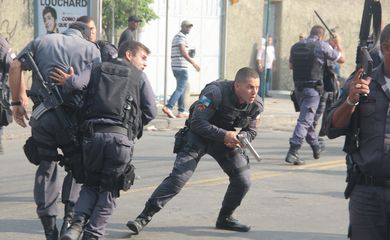Amnesty International raises red flag on police brutality in Rio


Amnesty International has received victims' families' reports of murder, abduction, and forced disappearances of young black Brazilians

Brazil has experienced “a severe public security crisis” over the last 30 years, with 56,000 murders reported in 2012 alone, according to a report released Monday (Aug 3) by Amnesty International, called “You Killed My Son”: Homicides by military police in thecity of Rio de Janeiro. Out of the total number of victims, 30,000 were young people aged between 15 and 29 years old, 90% were male, and 77% were black.
The activities of police, death squads, and militias have contributed significantly to this scenario. According to the report, public security policies in Brazil are marked by repressive police action in poor areas, often with the use of lethal force. “This is common practice,” says Átila Roque, Executive Director at Amnesty International Brazil.
Amnesty International looked into 220 investigations on police killings occurring in 2011 in Rio. Drawing on official data, interviews with witnesses, families of victims and police, as well as reviews of police reports, death certificates, forensic reports, photos, and videos, Amnesty International found “strong evidence of extrajudicial killings”. In some cases, the victim was killed when already wounded or after surrender. In others, the detainee posed no threats or police caught their target in an ambush.
Átila Roque draws attention to the fact that these killings end up unpunished and many are not even investigated. “We have been calling on prosecutors to create a task force ASAP to shed light on these cases,” he said. Another issue according to Roque is “local residents' fear that if they testify as witnesses they could become the next victims.”
In the final section of the report, Amnesty International urges federal and state governments, prosecution authorities, and Congress to confront police brutality and impunity. “This issue shouldn't be limited to the police. All other state bodies that are being ineffective, failing, or worse, they're neglecting their duties,” Roque concluded.
Translated by Mayra Borges
Fonte: Amnesty International raises red flag on police brutality in Rio



